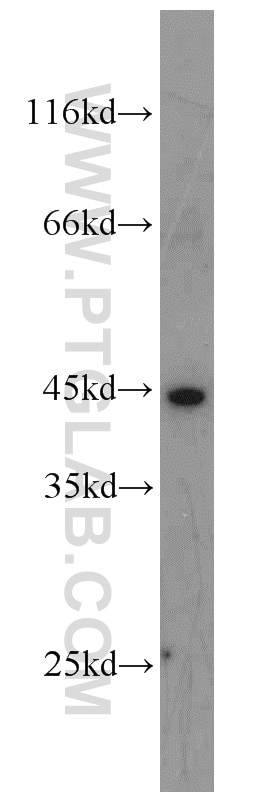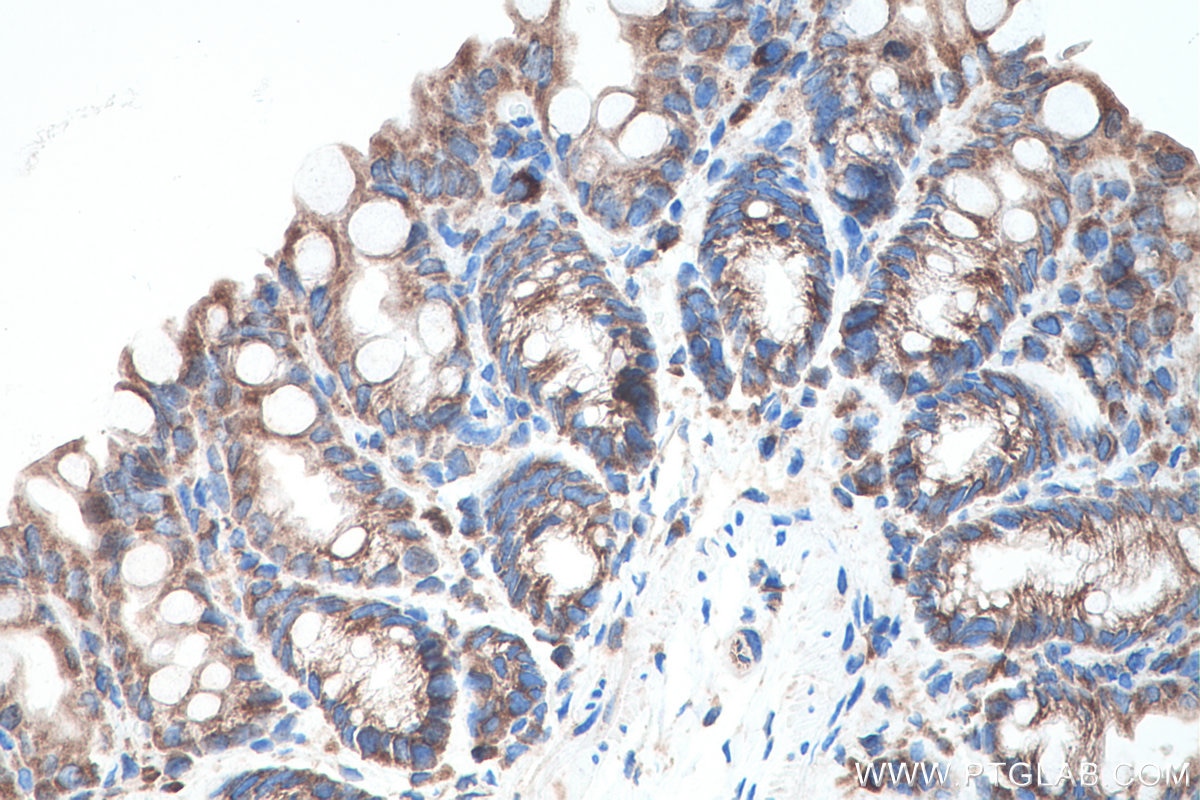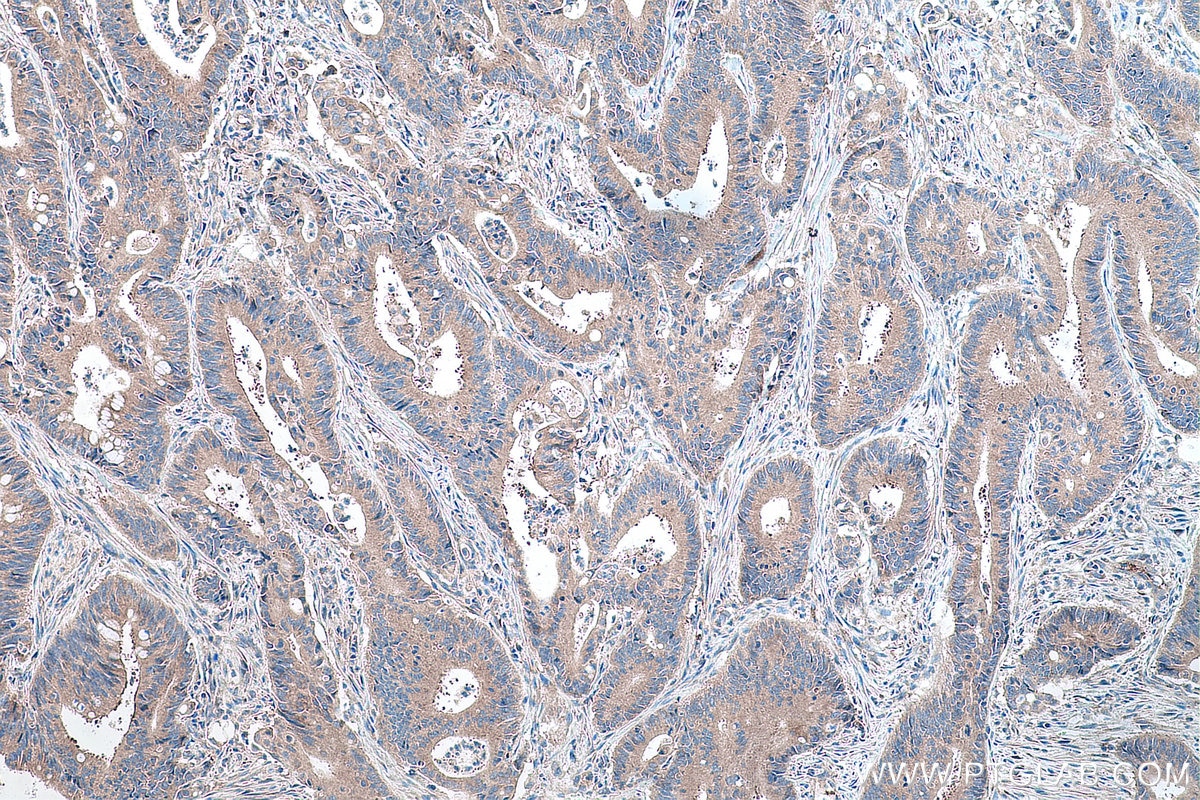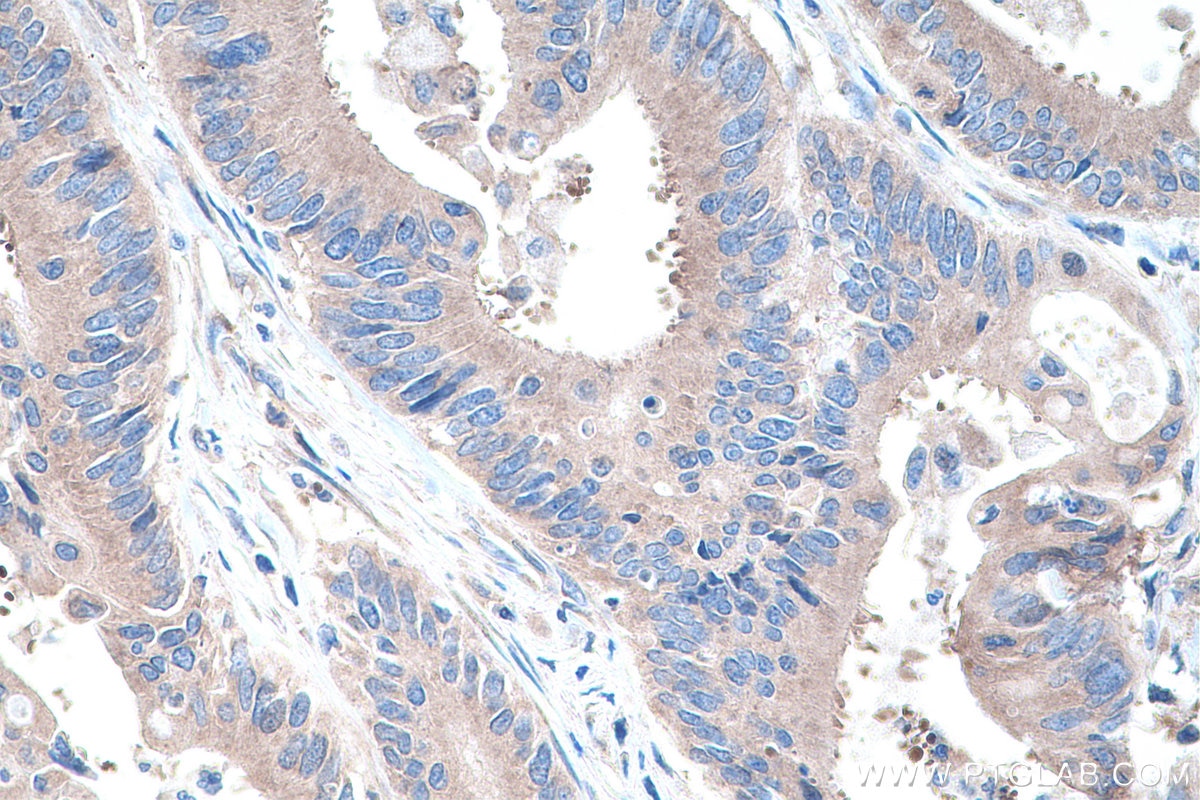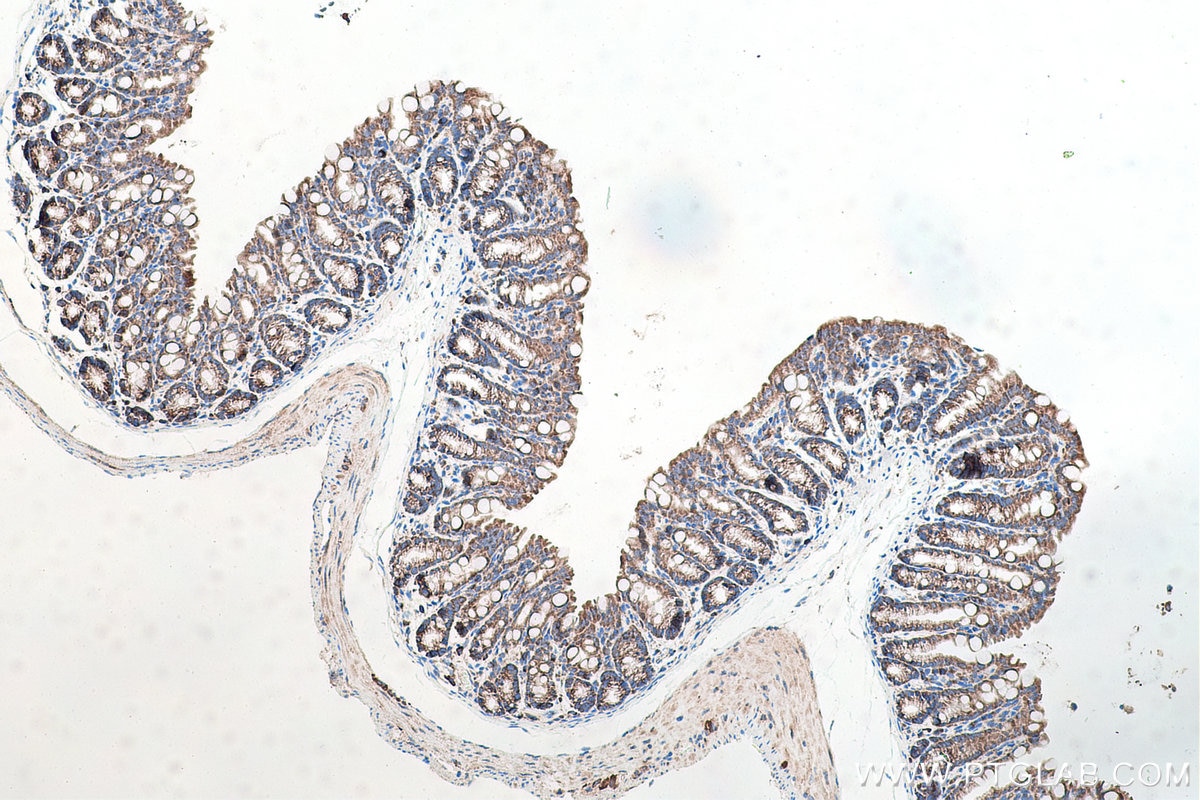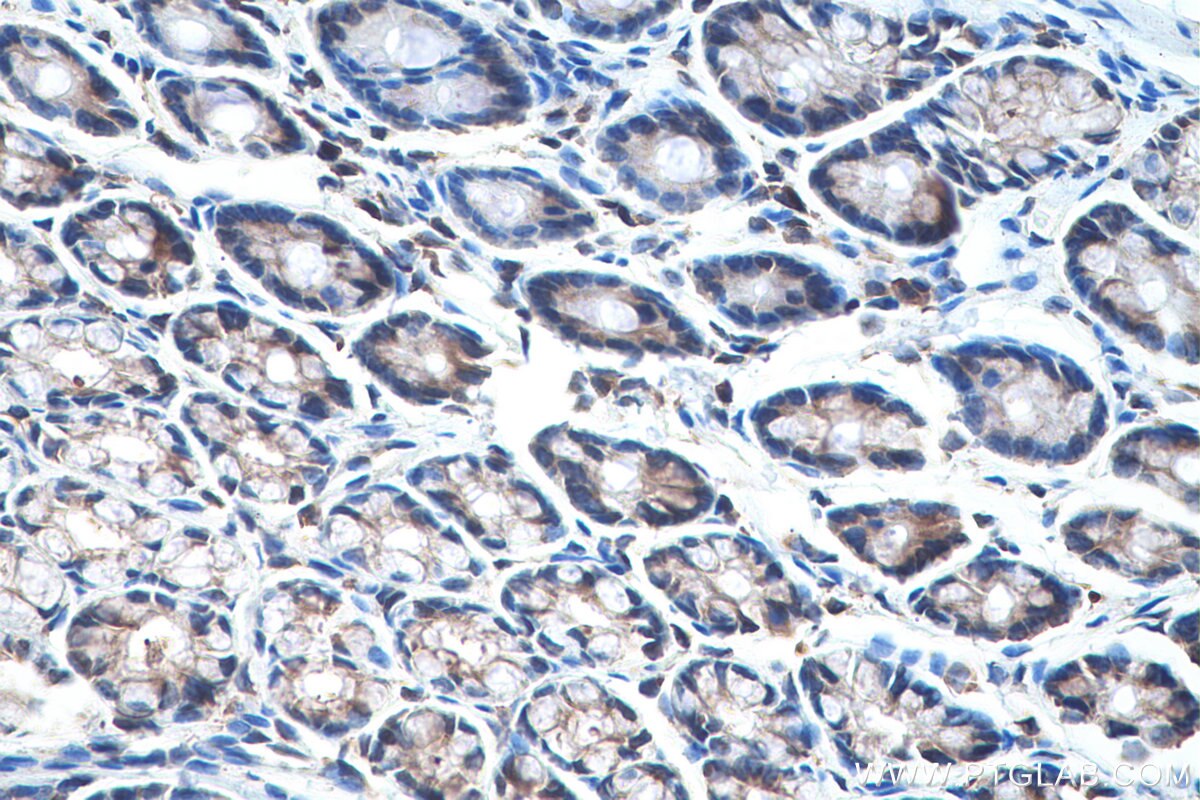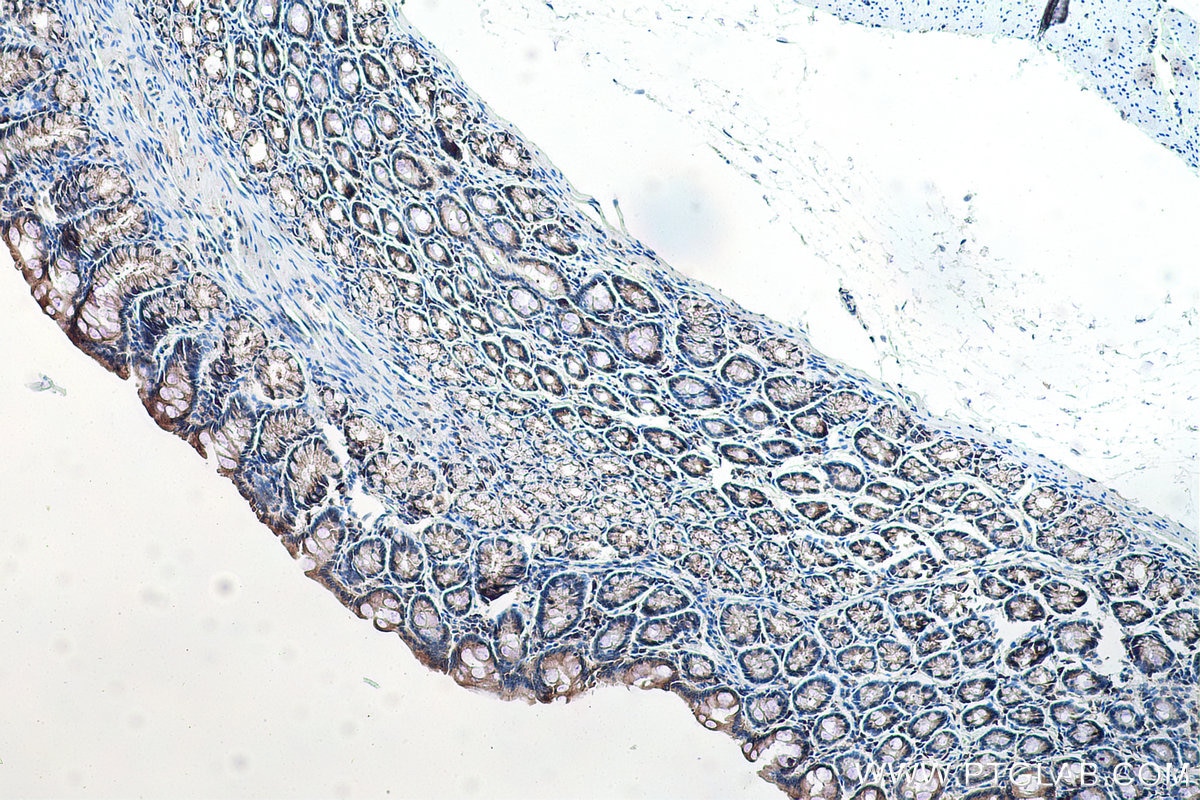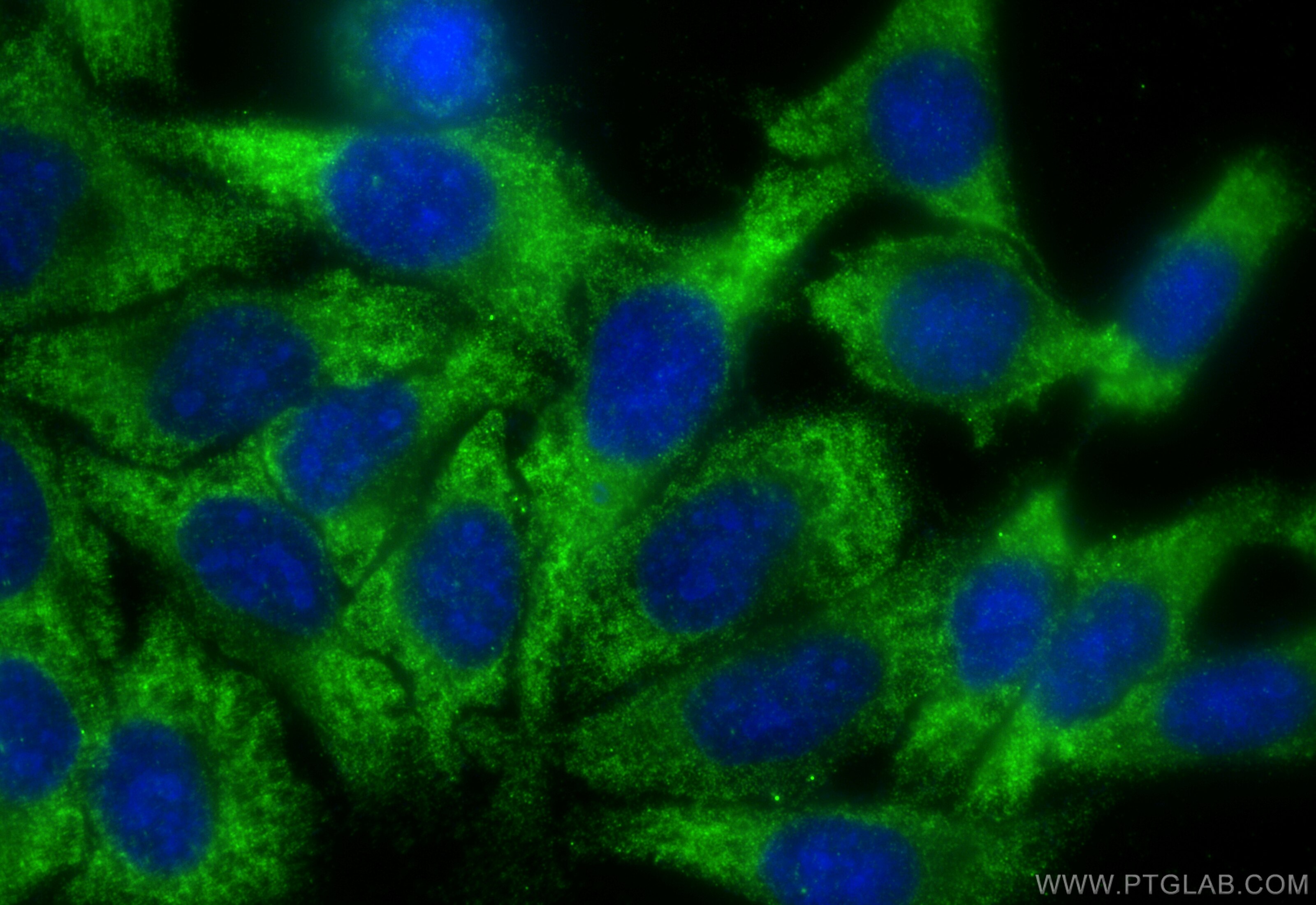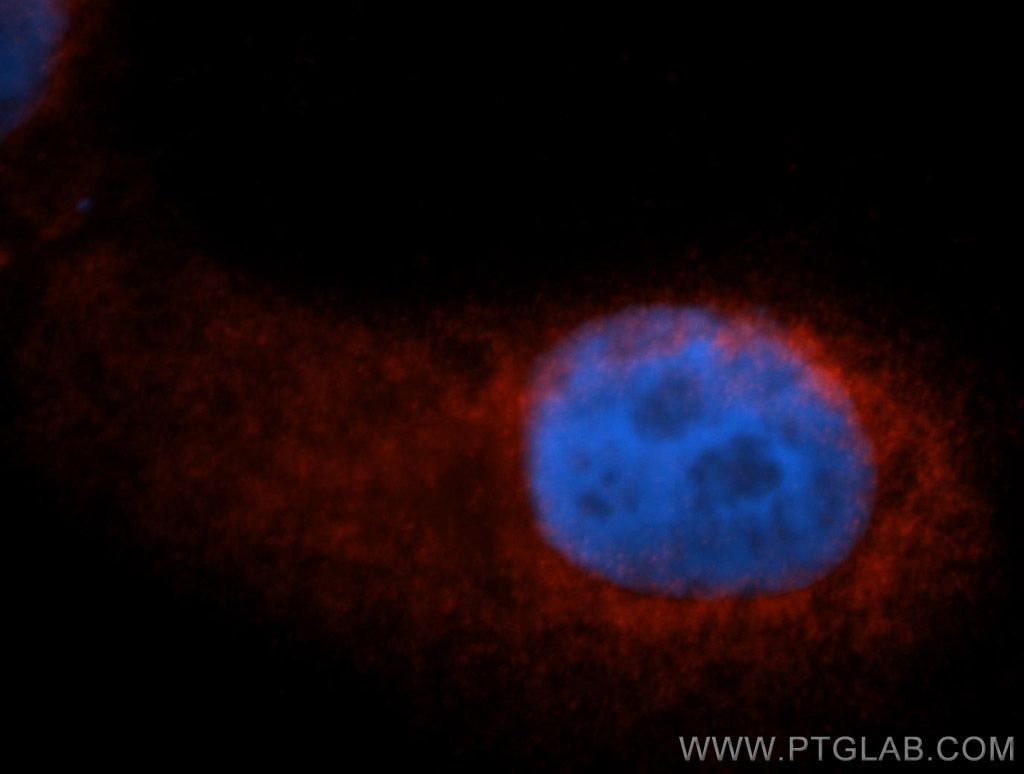Anticorps Polyclonal de lapin anti-EIF3G
EIF3G Polyclonal Antibody for WB, IHC, IF/ICC, ELISA
Hôte / Isotype
Lapin / IgG
Réactivité testée
Humain, rat, souris
Applications
WB, IHC, IF/ICC, ELISA
Conjugaison
Non conjugué
N° de cat : 11165-1-AP
Synonymes
Galerie de données de validation
Applications testées
| Résultats positifs en WB | cellules HepG2 |
| Résultats positifs en IHC | tissu de cancer du côlon humain, tissu de côlon de rat, tissu de côlon de souris il est suggéré de démasquer l'antigène avec un tampon de TE buffer pH 9.0; (*) À défaut, 'le démasquage de l'antigène peut être 'effectué avec un tampon citrate pH 6,0. |
| Résultats positifs en IF/ICC | cellules HepG2, cellules A549 |
Dilution recommandée
| Application | Dilution |
|---|---|
| Western Blot (WB) | WB : 1:500-1:1000 |
| Immunohistochimie (IHC) | IHC : 1:500-1:2000 |
| Immunofluorescence (IF)/ICC | IF/ICC : 1:200-1:800 |
| It is recommended that this reagent should be titrated in each testing system to obtain optimal results. | |
| Sample-dependent, check data in validation data gallery | |
Applications publiées
| WB | See 1 publications below |
| IF | See 2 publications below |
Informations sur le produit
11165-1-AP cible EIF3G dans les applications de WB, IHC, IF/ICC, ELISA et montre une réactivité avec des échantillons Humain, rat, souris
| Réactivité | Humain, rat, souris |
| Réactivité citée | Humain, souris |
| Hôte / Isotype | Lapin / IgG |
| Clonalité | Polyclonal |
| Type | Anticorps |
| Immunogène | EIF3G Protéine recombinante Ag1653 |
| Nom complet | eukaryotic translation initiation factor 3, subunit G |
| Masse moléculaire calculée | 36 kDa |
| Poids moléculaire observé | 44 kDa |
| Numéro d’acquisition GenBank | BC000733 |
| Symbole du gène | EIF3G |
| Identification du gène (NCBI) | 8666 |
| Conjugaison | Non conjugué |
| Forme | Liquide |
| Méthode de purification | Purification par affinité contre l'antigène |
| Tampon de stockage | PBS with 0.02% sodium azide and 50% glycerol |
| Conditions de stockage | Stocker à -20°C. Stable pendant un an après l'expédition. L'aliquotage n'est pas nécessaire pour le stockage à -20oC Les 20ul contiennent 0,1% de BSA. |
Informations générales
Eukaryotic translation initiation factor eIF3, that plays a central role in translation initiation, consists of five core subunits that are present in both the budding yeast and higher eukaryotes. The EIF-3 complex associates with the 40S ribosome and facilitates the recruitment of eIF-1, eIF-1A, eIF-2:GTP:methionyl-tRNAi and eIF-5 to form the 43S preinitiation complex. The complex stimulates mRNA recruitment to the 43S PIC and scanning of the mRNA for AUG recognition. It is also required for disassembly and recycling of post-termination ribosomal complexes and subsequently prevents premature joining of the 40S and 60S ribosomal subunits prior to initiation. EIF3G is a component of the EIF3 complex. [PMID:20679478,20503360]
Protocole
| Product Specific Protocols | |
|---|---|
| WB protocol for EIF3G antibody 11165-1-AP | Download protocol |
| IHC protocol for EIF3G antibody 11165-1-AP | Download protocol |
| IF protocol for EIF3G antibody 11165-1-AP | Download protocol |
| Standard Protocols | |
|---|---|
| Click here to view our Standard Protocols |
Publications
| Species | Application | Title |
|---|---|---|
Nat Chem Biol Dynamic eIF3a O-GlcNAcylation controls translation reinitiation during nutrient stress. | ||
PLoS Pathog The proximal proteome of 17 SARS-CoV-2 proteins links to disrupted antiviral signaling and host translation. | ||
Cell Death Dis Nitric oxide triggers the assembly of "type II" stress granules linked to decreased cell viability. | ||
Cell Rep N6-methyladenosine in 28S rRNA promotes oncogenic mRNA translation and tyrosine catabolism |
